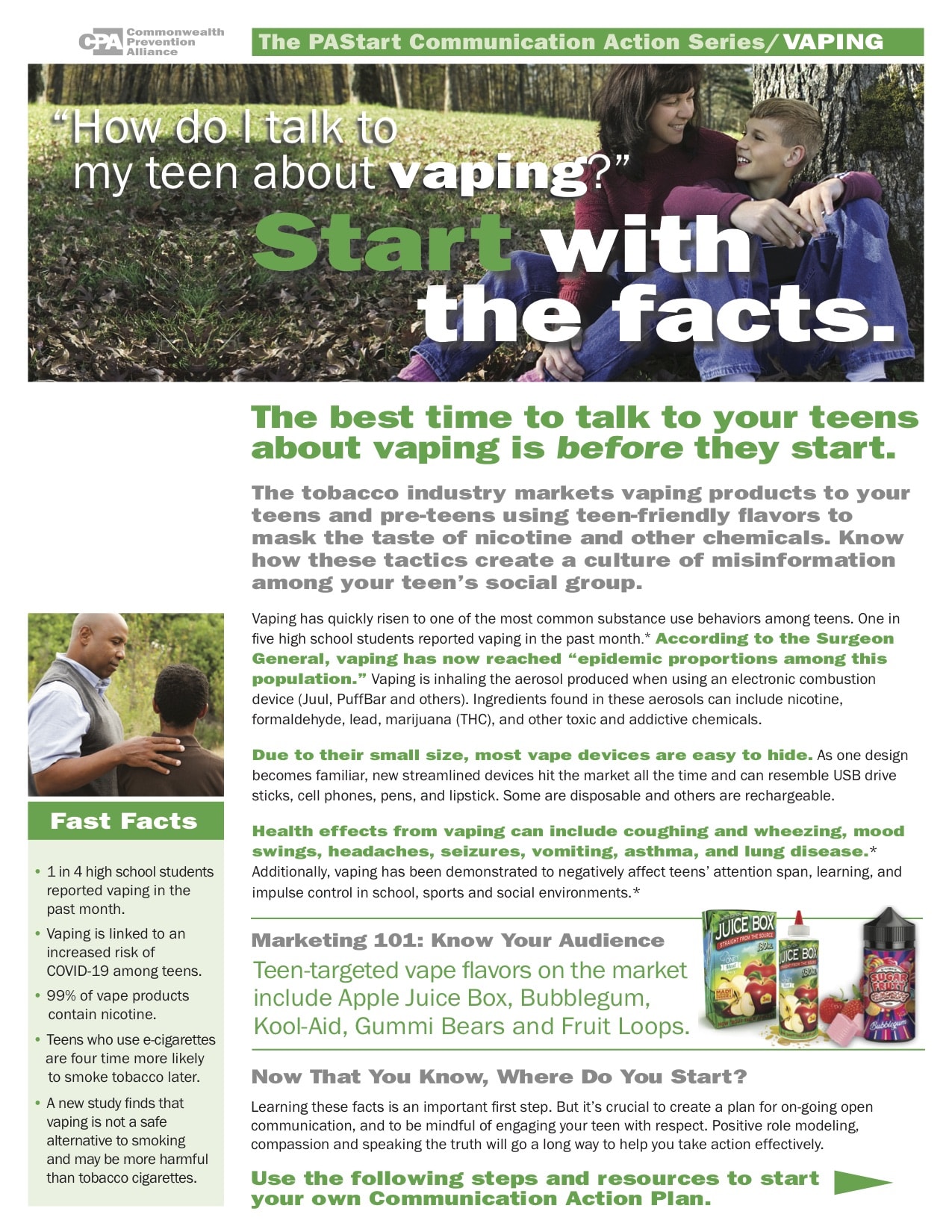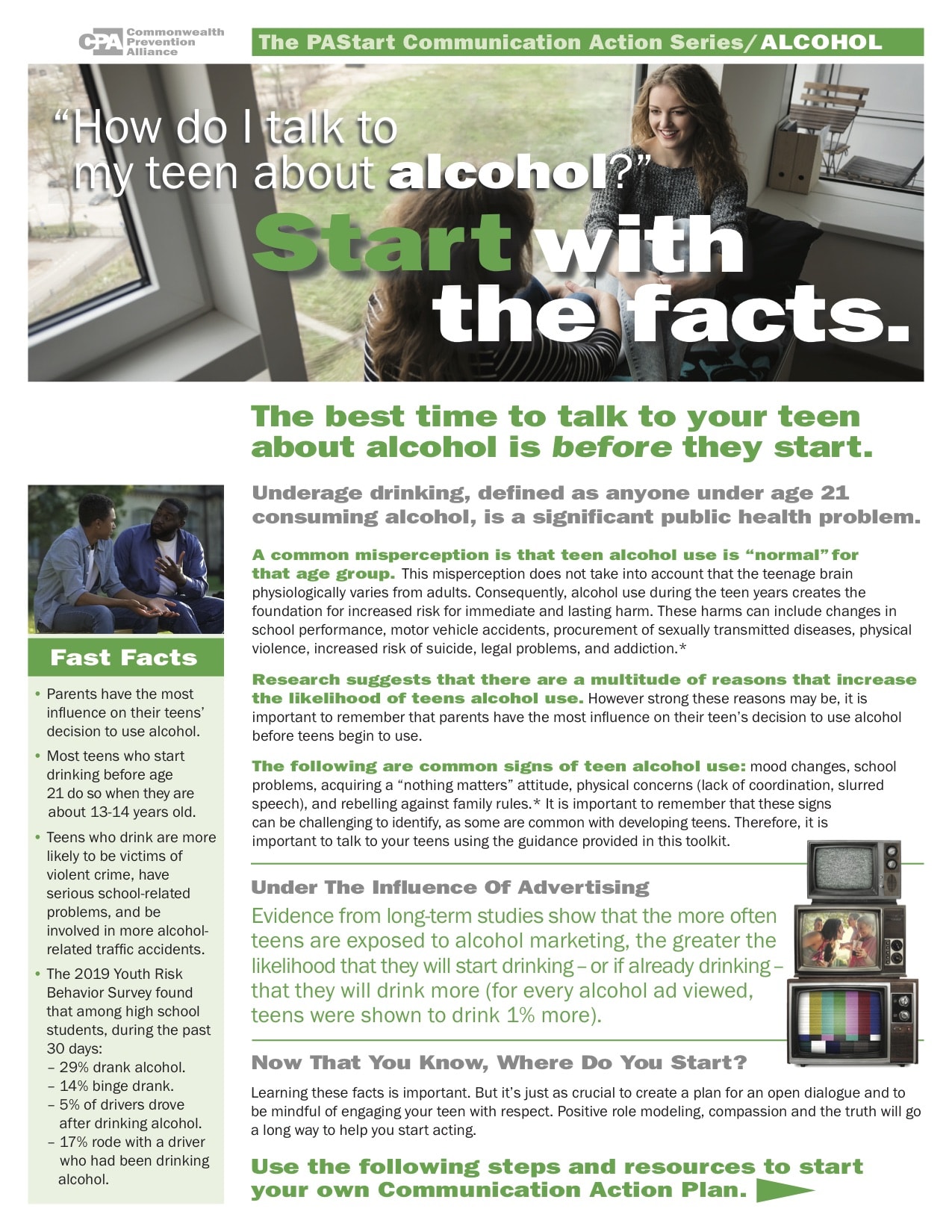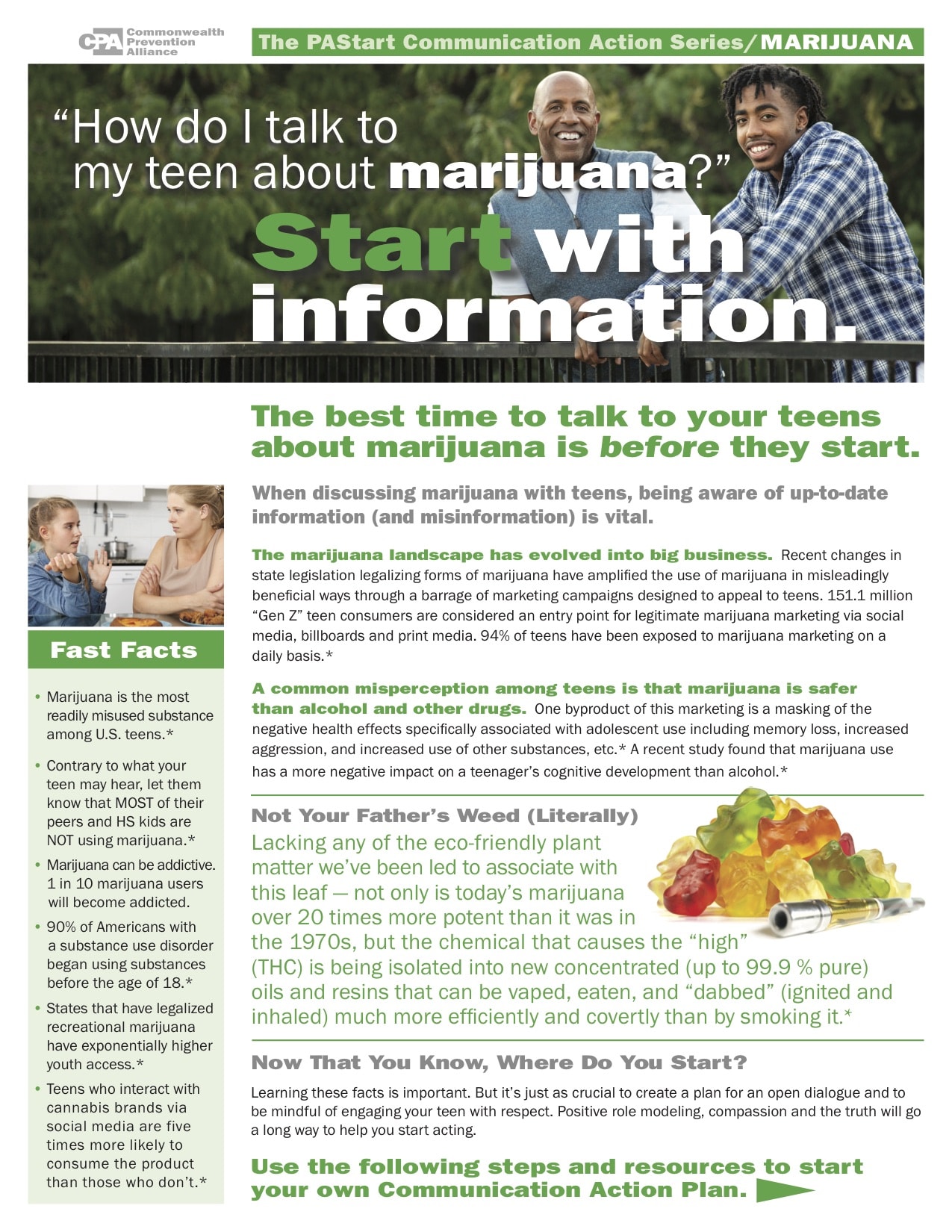Communication Action Series Toolkits

Substance Use and Behavioral Toolkits:
Adolescence is a tricky time and one of the most influential factors is maintaining a strong, open relationship with a parent. When parents create supportive and nurturing environments, children make better decisions, which is why it’s important that parents discuss the risks of using alcohol and other drugs. These kits were developed for parents, caregivers, teachers, student assistance teams, and others to have those tough conversations around substance use and mental health. All toolkits are available to view and download in Spanish and English.

Vaping Toolkit
Inhaling vapes has health risks, yet some kids think they are harmless. This kit offers strategies to prevent use and a quit tool if they have already started.

Alcohol Toolkit
Still the number one substance of abuse for teens. This kit provides the conversation starters and practical suggestions to help them understand the consequences and dangers of alcohol use.

Marijuana Toolkit
Opening up a discussion about cannabis may be one way to strengthen your relationship with your child and knowing the risks may will help you feel more prepared.

Mental Health Toolkit
Emotional and mental health issues in youth continue to increase. This kit provides tips for approaching this topic and initiating a healthy rapport with your child.


